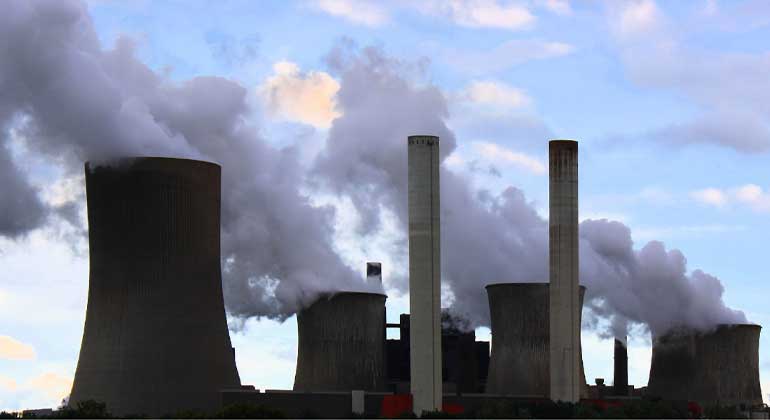Strict environmental laws ‘push’ firms to pollute elsewhere
Study highlights need for global cooperation on policies
Multinational companies headquartered in countries with tougher environmental policies tend to locate their polluting factories in countries with more lax regulations, a new study finds.
While countries may hope their regulations will reduce emissions of carbon dioxide and other greenhouse gases, these results show that these policies can lead to “carbon leakage” to other nations, said Itzhak Ben-David, co-author of the study and professor of finance at The Ohio State University’s Fisher College of Business.
“Firms decide strategically where to locate their production based on existing environmental policies, with the result being that they pollute more in countries with lenient regulations,” Ben David said.
“This highlights the importance of worldwide collective action to combat climate change, given the global scale of firms’ operations.”
The study was published online recently in the journal Economic Policy.
Researchers used a novel dataset covering 1,970 large public firms headquartered in 48 countries and their carbon dioxide emissions in 218 countries from 2008 to 2015. The database was provided by CDP, a nonprofit formerly known as the Carbon Disclosure Project.
“What makes this dataset unique is that we can observe the carbon dioxide emissions of each multinational firm in each country in which it operates,” Ben-David said.
“This provides direct evidence of the effect of environmental policies and each firm’s actual carbon dioxide emissions at the country level.”
The researchers also used rankings from the World Economic Forum that rated the strength of each country’s environmental policies on a scale of 1 (worst) to 7 (best).
The results of the new study don’t mean that tougher environmental regulations have no effect at all on global emissions, Ben-David said. Findings suggest that stringent policies are still associated with a partial, but positive, impact on reducing overall global pollution.
For example, an increase in the environmental policy score from China (2.1, suggesting weak regulations) to Germany (5.5, stronger regulations) is associated with 44% lower global emissions.
But it is also associated with a 299% increase in foreign emissions when compared to the companies’ home countries.
“If you make it more difficult to pollute in a company’s home country, firms will move some of that pollution activity to somewhere else,” Ben-David said.
The study examined whether stricter policies “pushed” firms to pollute elsewhere or lax regulations “pulled” firms to countries where it was easier to pollute.
“We found that the results were primarily driven by the environmental policies in the home country, rather than by opportunities to pollute elsewhere,” he said. “It was more of a ‘push’ effect than a ‘pull’ effect.”
Not surprisingly, firms in the most polluting industries were the ones most likely to respond to strict policies in their home countries by locating their pollution activities elsewhere.
Overall, most carbon dioxide is released in an average company’s home country, but the share of home emissions declined substantially over time from 72% in 2008 to 57% in 2015, the researchers found.
In addition, the number of countries in which the average firm polluted increased from six to nine during the period of the study.
“Environmental regulations in each country do work to somewhat reduce global emissions of carbon dioxide, but they also have this negative side effect of pushing pollution to other countries,” Ben-David said.
“Countries need to collaborate if they really want environmental policies to have the strongest impact.”
Co-authors on the study are Yeejin Jang of the University of South Wales; Stefanie Kleimeier of Maastricht University, Open University and University of Stellenbosch; and Michael Viehs of the European Center for Sustainable Finance and Federated Hermes International.








